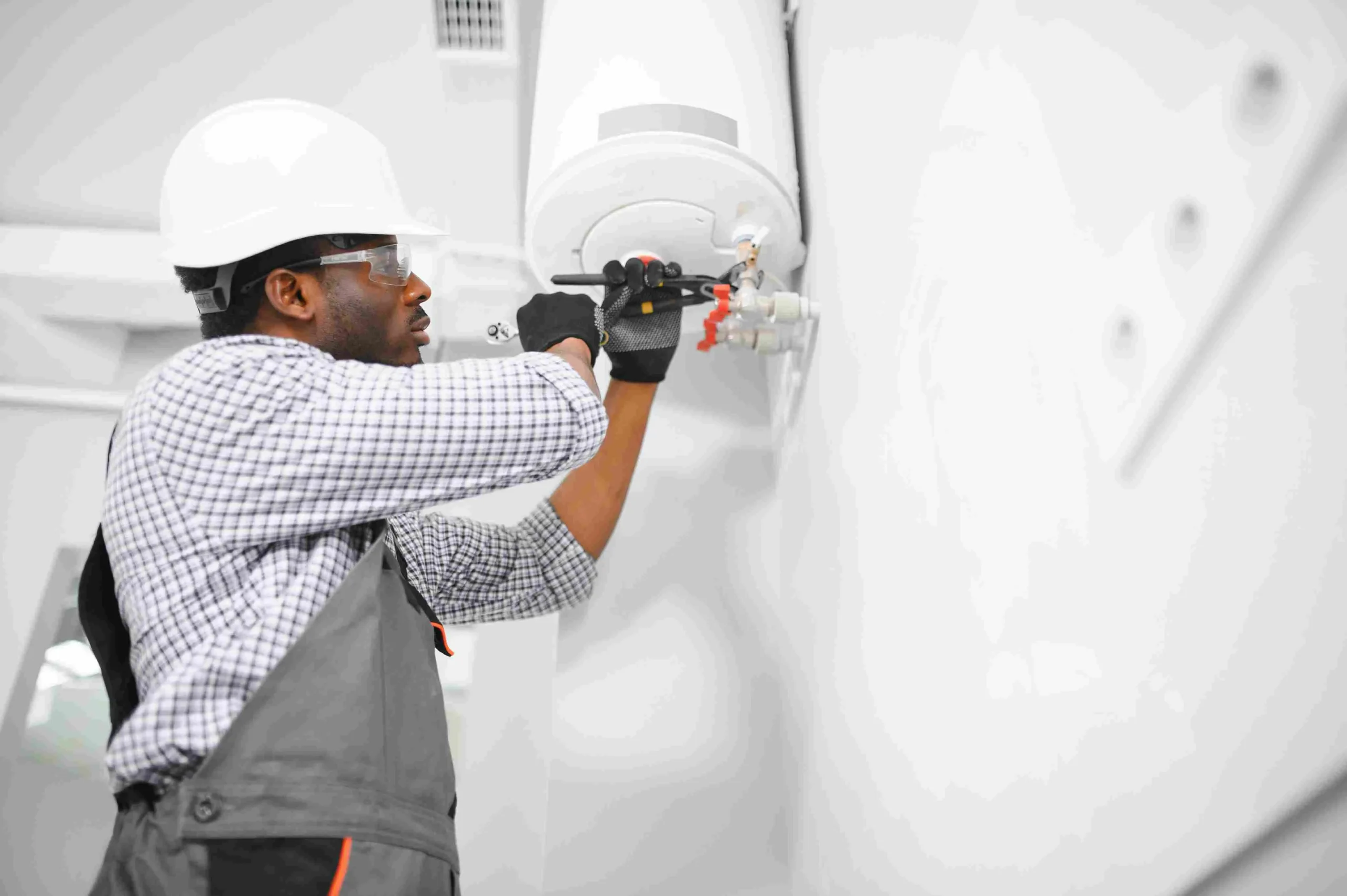Why You Should Never Neglect Your Water Heater Anode Rod
Have you thought about how some water heaters last decades while others barely make it past five years? It’s not just luck. It’s because of the water heater anode rod.
This hidden metal rod inside your tank fights off rust, taking all the damage so your water heater doesn’t. This metal rod is the only thing standing between your tank and full-blown rust damage. Once it wears out, your heater will be left unprotected.
Most people don’t even know it exists until they’re faced with cold showers and a hefty repair bill. Don’t let that be you. Keep reading to find out why this overlooked part is the key to a long-lasting water heater.
What Does an Anode Do in a Water Heater?
It attracts all the corrosive elements in your water by sacrificing itself to keep the steel tank from rusting. Instead of rust eating away at your tank, the anode rod takes the hit.
Most people never think about what’s inside their water heater. But if you want to avoid expensive repairs and cold surprises, it’s one component you should take note of.
Without it, your water heater would start corroding from the inside. Once it’s gone, there’s nothing left to protect the steel lining of your heater. Most homeowners don’t even know this part exists. Let alone that it needs to be replaced.
Why Neglecting the Anode Rod Can Lead to Major Problems
An anode rod doesn’t last forever. Once it’s used up, your water heater is left completely exposed to corrosion. Ignoring your water heater anode rod is like never changing the oil in your car. Your unit might still work for a while, but the damage will catch up to you sooner. Water heater failures can cost an average of $4,444 per incident after the deductible is paid. That’s why a little preventive maintenance is well worth it.
1. Your Tank Starts Rusting from the Inside
The second your anode rod is gone, your water heater becomes a rust magnet. By the time you notice rust-colored water, the damage is already done.
2. Your Hot Water Smells Terrible
Ever turned on the tap and smelled rotten eggs? That’s bacteria reacting with the metal in your heater which creates a sulfuric stink.
3. Your Water Heater Struggles to Heat Water
As sediment builds up inside the tank, it makes you wait longer for hot water and sends your energy bill through the roof.
4. You’re Cutting Its Lifespan in Half
A well-maintained heater can last over a decade. But if you let your anode rod for water heater protection wear out, corrosion will take over. You might see yourself replacing your unit years sooner than expected.
Water Heater Installation refers to the professional setup of a new water heater, whether it's a traditional tank, tankless, or hybrid system. Proper installation ensures efficient performance, energy savings, and compliance with local plumbing codes. Hiring a licensed plumber guarantees a hassle-free setup with optimal safety and longevity.
How to Maintain and Replace the Anode Rod
You wouldn’t drive a car for years without changing the oil, right? The same logic applies to your anode rod. Here’s how to stay on top of it:
1. Shut Off Power and Water
- For electric heaters, turn off the breaker.
- For gas heaters, set the thermostat to “pilot.”
- Close the cold water supply valve.
2. Find Where the Anode Rod Is
- It’s usually on top of the tank, secured with a hex bolt.
3. Remove and Inspect It
- Use a socket wrench to unscrew it. If it’s heavily corroded, coated in buildup, or nearly gone, it’s time for a replacement.
4. Choose the Right Replacement
- Magnesium: Best for soft water, but wears out faster.
- Aluminum/Zinc: Good for hard water areas, helps reduce odors.
5. Install the New Anode Rod
- Insert it into the tank and tighten it securely.
6. Turn Everything Back On
- Restore power and water. Run hot water for a few minutes to clear any air pockets.
How Long Does an Anode Rod Last?
Most anode rods last between 3 to 5 years, but that depends on your water quality. If you have hard water with lots of minerals, your rod will wear out much faster. In fact, experts recommend inspecting the anode rod after the first three years of use and then giving it a yearly once-over to keep your water heater protected.
How often should I check or replace the anode rod in my water heater?
At a minimum, check your anode rod every 2 to 3 years. If you live in an area with hard water, annual checks are necessary. Replacing it in time can add years to your heater’s life and prevent any unplanned emergency replacement.
How do I know when the anode rod needs to be replaced?
Not sure if your anode rod is still fighting off rust? Here are some warning signs:
- Your hot water has a metallic taste or sulfur smell.
- The water heater makes popping or rumbling noises.
- Your water heater is over 5 years old and you’ve never checked the anode rod.
- The rod looks thin, heavily corroded, or coated in white calcium deposits when removed.
Benefits of Regularly Maintaining Your Anode Rod
Here’s what you gain from regular maintenance of your water heater’s anode rod:
- Prevents tank corrosion
- Keeps water fresh and odor-free
- Boosts heating power
- Avoids unexpected breakdowns
- Extends your water heater’s lifespan
Replacing an anode rod is one of the easiest ways to protect your water heater. A little maintenance today can save you thousands in the long run.
Keep Your Water Heater Protected with Wally Blanton
Most people don’t think about their water heater anode rod until their hot water starts smelling like rotten eggs or their heater gives out too soon. By the time rust shows up, the damage is already done. If you’re not sure when yours was last checked, it’s time to get expert help. Call Wally Blanton at (847) 345-8185 before a small fix turns into a big problem.

